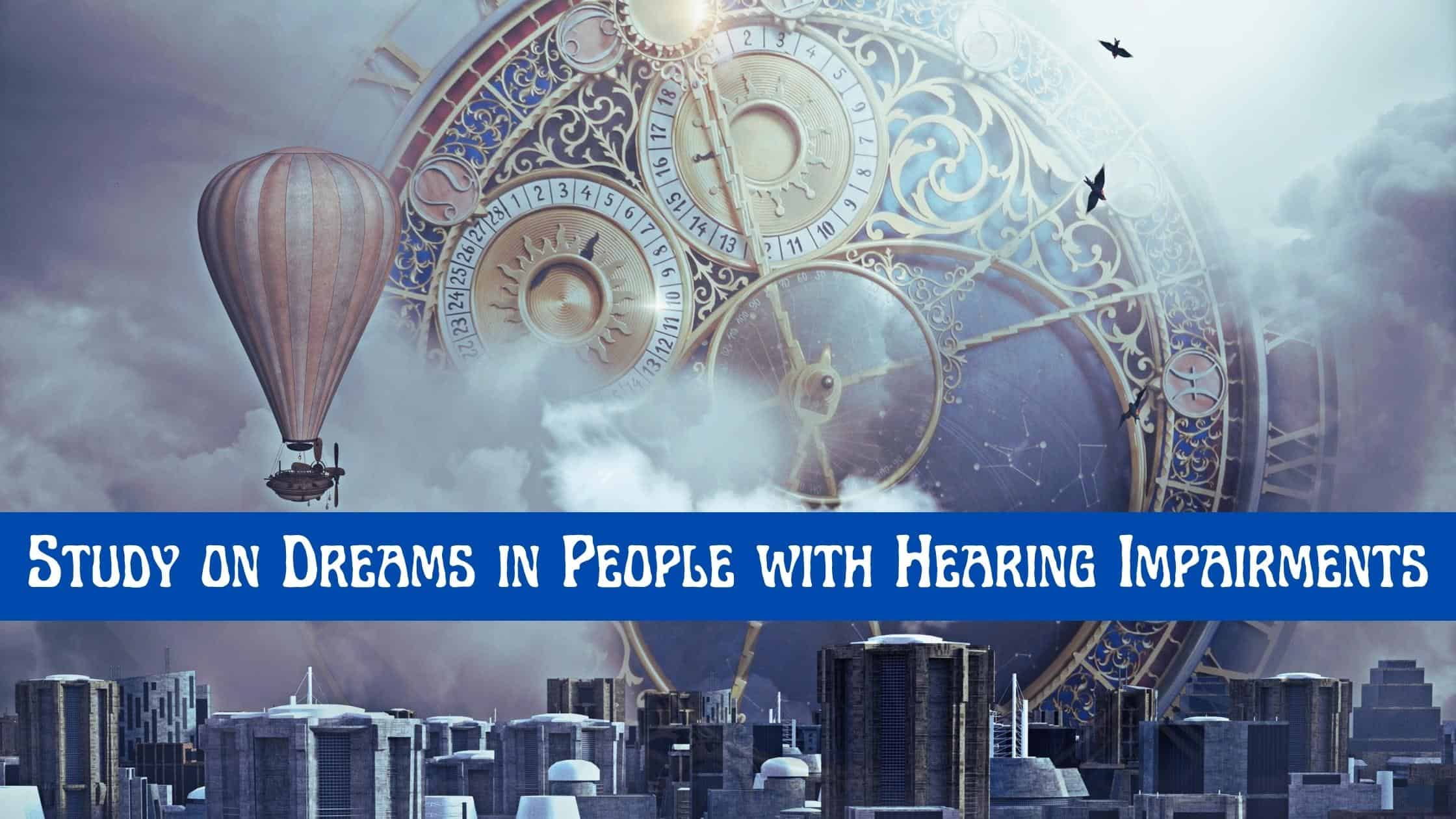
What do you dream about? We’re guessing that, like most people, the answer is “a lot of things.” Many factors influence what we dream about, and even more, factors influence what we remember about our dreams.
The most common category is “recurrent dreams,” People experience a recurring dream over several years. Those dreams share several common themes: being chased by an animal, being late to work, or losing a child in public. They also tend to have a lot more details than other dreams.
The next most common type is “lucid dreaming,” People remember they’re dreaming and can manipulate their dreams. These often have the same themes as recurrent dreams, but with some interesting twists—for example, You might be late to work on your recurring dream; while lucid dreaming, you might be able to control this, so you show up exactly on time.
While lots of things influence our sleep, did you know that hearing loss could also play a part? That’s according to a recent study.
Deaf / hard of hearing people and their dreams
It was recently discovered that dreams might be affected by hearing.
In a study titled Waking and Sleeping, researchers investigated people’s dreams with hearing loss. After their research, they concluded that people with hearing impairments hear sounds in their dreams. The 14 people with hearing loss who participated in the study experienced sound in their dreams in the same way as the other participants.
However, the investigation doesn’t end there. According to a more extensive study with 430 participants, people with hearing loss do dream differently. Eighty-six people with hearing loss took part in the study, and many of them said they could hear things in their dreams. Other emotions and sensations, including fear, pain, anger, hope, and surprise, were also reported by those who took part in the study.
These feelings and sensations were reported in dreams by 344 people with normal hearing, but they occurred much more frequently for those with hearing loss. In addition to frequent lucid dreams, those who had hearing loss reported even more frequent lucid dreams. In addition, their dreams were less vivid, and they had a more difficult time recalling specific dreams.
Those with hearing loss are making up for it in their dreams.
A wide range of emotions and sensations can be experienced in dreams by deaf or partially deaf people.
Hearing loss weakens hearing, but many people report that their other senses become more robust due to the condition. They may notice, for example, that their vision is clearer or that their sense of smell is more acute. Sensory compensation is a possible explanation for this. To ensure your safety and fill in any gaps in your hearing, sensory compensation can occur.
People with hearing loss may benefit from sensory compensation at night and during the day, evidenced by more vivid dreams.
Untreated hearing loss is a cold hard reality for many.
Sensory compensation is a valuable tool because it can help you keep track of what’s going on around you. But it can’t make up for the loss of hearing.
You may find it challenging to enjoy conversations with loved ones if you have untreated hearing loss. You may feel isolated from your loved ones and frustrated. A heightened sense of smell won’t help you understand what is said. Conversations with friends may become less frequent, or you may even stop meeting together. As a result, you may become more anxious and depressed.
Hearing aids can help.
It’s time to get a hearing test if you suffer from hearing loss. Using hearing aids means you won’t have to rely on sensory compensation to hear everything around you. Hearing aids, on the other hand, will help you understand what people are saying, hear soft noises, and, in some cases, even help your brain dream about sound.
To meet the needs of our patients, we offer a variety of styles of hearing aids. Make sure you use the programs and settings that work best for you and then add on additional features to help you hear in a completely new light.
We spend a lot of time getting to know you and your hearing needs during the hearing test. Make an appointment with us right away by contacting us. We’ll assist you in locating the hearing aids that best suit your needs and make your waking hours even more enjoyable than your sleep.
